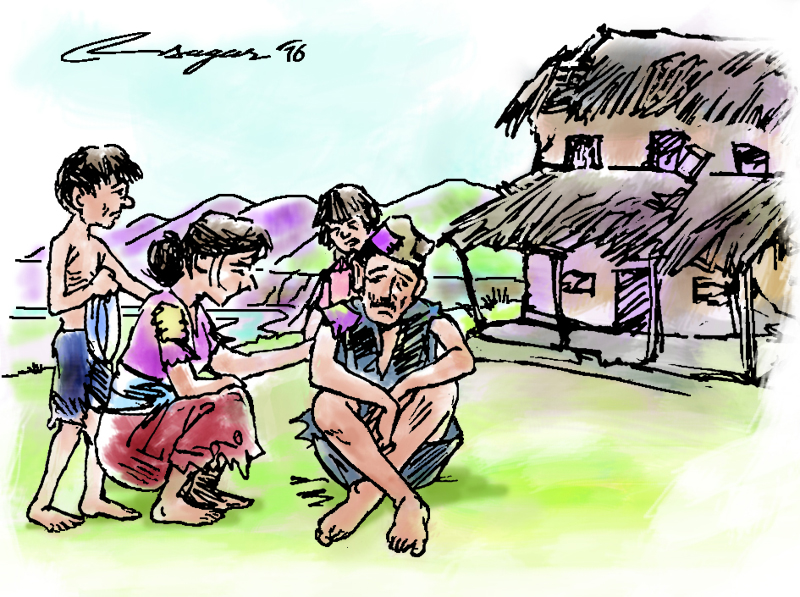Why nations fail: Extractive economies
Extractive political institutions concentrate power in the hands of a narrow elite and place few constraints on the exercise of this power. Extractive economies sow the seeds of their own destruction and inclusive economies help to perpetuate themselves
The most common reason why nations fail today is because they posses extractive institutions. Nations fail today because their extractive institutions do not create the inducements needed for people to save, invest and innovate.
Extractive political institutions sustain their economic institutions by strengthening the power of those who enjoy benefit from the extraction. Extractive economic and political institutions diverge under different circumstances and are always at the core of the failure.
In many cases, e.g. we have seen in Argentina, Colombia and Egypt, this failure takes the form of a lack of sufficient economic activity because the politicians are just too happy to extract resources or nullify any type of independent economic activity that threatens themselves and economic elites.
In some extreme cases of Zimbabwe and Sierra Leone, extractive institutions pave the way for state failure, destroying not only law and order but also the most basic economic motivations.
The result is economic stagnation and as the recent experiences of Congo, Angola, Haiti, Nepal and Sudan demonstrate, resultant civil war, mass displacements, famines and epidemics end up making many of the countries poorer today.
Extractive institutions confiscate and deprive the people and obstruct the economic development.
Extractive institutions falling into civil war and state failure are common in Africa. Extraction paves the way for conflict. Conflict accelerates state failures therefore another reason why nations fail today is because that their states fail. This is a consequence of rule under extractive economic and political institutions.
Nations fail economically because of extractive institutions. These institutions keep poor countries poor and prevent them from boarding on a path to economic growth. This is true in Africa in countries such as Colombia and Argentina, in Asia in countries such as North Korea and Uzbekistan in the Middle East, in nations such as Egypt.
In all the cases the foundation of these institutions is elites who design economic institutions in order to enrich themselves and perpetrate their power at the expense of the vast majority of people in society.
The different histories and social structures of the countries lead to the differences in the nature of the elites and in the details of the extractive institutions. But the reason why these extractive institutions persist is always linked to the fierce ring, and the repercussions of these institutions in terms of impoverishing their citizens are alike even if their strength varies.
The solutions to the economic and political failure of nations today are to transform their extractive institutions toward inclusive ones.
Inclusive political institutions tend to support inclusive economic institutions inclusive economic institutions that enforce property rights create a level playing field, and encouragement in technologies and skills is more conducive to economic growth than extractive economic institutions that are structured to extract resources from the many by the few and that fail to protect rights and provide enticements for economic activity.
Inclusive political institutions are those that distribute political power widely in a pluralistic manner and are able to achieve some amount of political centralization so as to establish law and order, the foundations of secure property rights, and an inclusive market economy.
Inclusive economic institutions such as South Korea, United States are those that allow and encourage participation by the great mass of the people in economic activities that utilizes maximum use of their talents and skills and that go to make the selections they wish.
To be inclusive, economic institutions must feature secure private property, an unbiased system of law and a provision of public services that provides a level playing field that gives them the opportunity to do so. It also permits the entry of new businesses and allows people to choose their careers.
Inclusive economic institutions also pave the way for two other engines of prosperity technology and education. Sustained economic growth is almost always accompanied by technological improvements that enable people, land, and existing capital such as buildings and machines to become more productive.
Correspondingly, extractive economic institutions are synergistically linked to extractive political institutions which concentrate power in the hands of a few who will then have incentives to maintain and develop extractive economic institutions for the benefit and use of the resources they obtain to reinforce their hold on political power.
Extractive political institutions concentrate power in the hands of a narrow elite and place few constraints on the exercise of this power. Extractive economies sow the seeds of their own destruction and inclusive economies help to perpetuate themselves.
Dr. JBR is a former senior economist, Agricultural Projects Services Centre (APROSC)






